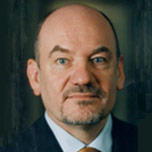
After more than 40 years of operation, DTVE is closing its doors and our website will no longer be updated daily. Thank you for all of your support.
Cable Europe calls for ‘investment-friendly’ connectivity regulation
Cable Europe has called for an investment-friendly and predictable regulatory environment, following last week’s discussions on the Electronic Communications Code.
Telecoms ministers from the EU member states last week discussed the Maltese Presidency’s progress report on legislation designed to help Europe’s transition to a ‘gigabit society’.
Cable Europe said that while it broadly welcomes the progress made to date, it warned that a failure to adequately address a number of proposed barriers to investment would “fundamentally damage Europe’s connectivity ambitions”.
The trade body for cable broadband operators said that an investment friendly framework was the initial objective of the EU Commission, and called upon member states to keep intact “the nature and intent of the Electronic Communications Code”.
“We all share the same goals for a connected continent. Despite this, the progress report published by the Maltese Presidency shows that well established and effective principles enshrined in competition law are being called into question by some Member States,” said the executive chairman of Cable Europe, Matthias Kurth.
“This would endanger the predictable and stable regulatory environment essential for investment, the creation of which was the commission’s primary purpose when making digital goals a top priority, and ultimately damage our chances of success.
“We urge the European Institutions to stick to the necessary toolkit, to limit access to networks when they are not dominant, and to promote infrastructure competition.”
The news follows recent research, commissioned by Liberty Global, which claims that Liberty’s €14.5 billion investment in super-fast networks over the past four years has generated total economic activity in the region of €23.5 billion and has provided a ‘net social benefit’ of €7.1 billion.



